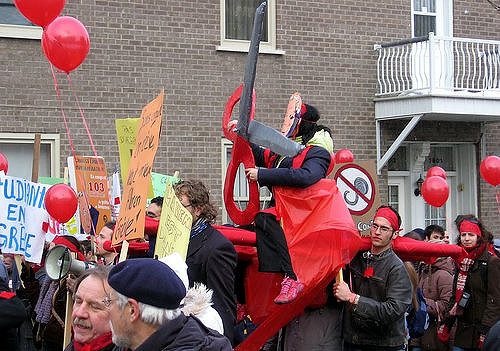
This week, Phispers looks at fresh troubles brewing at Mylan, as rebel investors intensify their demand for remaking the board, and a low-cost rival for EpiPen gets FDA nod. Meanwhile, BMS sold off its API plant in Ireland to South Korea’s SK Biotek and Baxter tied up with CRO Dorizoe for speedier development of generic injectables. There is more news on Dr. Reddy’s, Ipca and CROs this week. Read on.
Tough time for
Mylan as camp to oust directors grows; Adamis to launch EpiPen rival
The war at Mylan — with rebel investors on one side, and the management on the other side — intensified last week as another proxy firm joined hands with the rebel investors looking to remake the board.
Egan-Jones Proxy Services joined ISS, Glass Lewis and a group of rebel shareholders in pushing for the ouster of the board members. Together, they feel Mylan shareholders should vote against the re-election of six directors.
Mylan shareholders will meet in Amsterdam on Thursday, June 22, 2017.
The investors are not just disturbed over Chairman Robert Coury’s US$ 97 million pay package for 2016, but are also upset that Mylan turned away potential acquirer Teva. And that government investigations over pricing went beyond the EpiPen, and involved its generic drugs as well.
However, Mylan’s CEO Heather Bresch shot back by blaming the company’s problems on external pressures, as opposed to internal missteps.
Meanwhile, Mylan received another setback last week when Adamis Pharmaceuticals received approval for selling its emergency epinephrine syringes in the US. Adamis’ epinephrine syringes will prove to be a lower cost alternative to Mylan’s widely used EpiPen. Epinephrine treats severe allergic reactions.
Adamis is reportedly looking for a marketing partner and would set a price for the product before its launch sometime in the second half of 2017. Its pre-filled epinephrine syringes would be sold under the brand name Symjepi.
Trump’s volte-face: Pharma executive order to have positive impact on industry
President Donald Trump has repeatedly spoken about being tough on the drug industry. Yet, his administration is yet to take any measure that lives up to his promise of lowering drug prices.
On the contrary, news reports suggest that Trump administration’s plan to lower prescription drug prices may end up being friendly to drug companies.
The 'Drug Pricing and Innovation Working Group’, a group of officials from the Trump administration, have been meeting every two weeks to discuss drug pricing. The group is led by Joe Grogan, an associate director at the Office of Management and Budget who worked for Gilead Sciences until March this year. Gilead has been repeatedly criticized for pricing its hepatitis C drugs at US$ 1,000 per pill.
To solve the crisis of high drug prices, the group discussed strengthening the monopoly rights of pharmaceuticals overseas, ending discounts for low-income hospitals and accelerating drug approvals by the US Food and Drug Administration (FDA). According to Kaiser Health News, the policies wouldn't ease the cost of prescription drugs, and might even increase them.
The Trump administration is preparing the executive order, which could be signed within weeks.
According to another news report, the executive order was originally expected to have a negative impact on the drug industry, but the policies now under consideration would not do so. For instance, the Trump administration is said to be considering direct federal agencies to pursue value-based purchasing contracts for drugs. Another policy under discussion would instruct agencies to pursue trade policies that would strengthen the intellectual property rights of drug companies.
The industry too expects a positive impact. Allergan CEO Brent Saunders recently said the executive order on drug pricing could have a positive impact and he believes his company is well-positioned to handle any changes.
BMS sells its API plant in Ireland to Korea’s SK Biotek
Bristol-Myers Squibb (BMS) is selling off its API plant in Ireland to South Korea’s SK Biotek. The divestment is in line with BMS’ shift in focus towards biologics manufacturing.
SK Biotek is a unit of South Korea’s third largest conglomerate, SK Holdings. The company has been a BMS ingredient supplier for a decade.
Though the terms of the deal are not known, it is likely to close in the last quarter of 2017. SK Biotek will continue to manufacture products BMS currently makes at the plant, which includes the API for BMS and Pfizer’s anticoagulant Eliquis.
SK Biotek will use this plant for its contract development and manufacturing business, which is growing at a healthy pace. It plans to add marketing and R&D operations at the site, as well as invest in boosting capacity.
“This transaction is an important step to achieve our goal of becoming a leading global CDMO (contract development and marketing organization),” Junku Park, CEO, SK Biotek, said in a statement.
Ipca’s products banned from US; Dr. Reddy’s provides positive inspections updates
Of late, Dr. Reddy’s has been providing positive inspection updates. On June 16, the company said it received one US FDA observation for its Srikakulam formulation plant, which the company is addressing. However, the company didn’t disclose the nature of the observation.
Three days prior, on June 13, Dr.Reddy’s had received an Establishment Inspection Report (EIR) for its Miryalaguda plant, indicating closure of the FDA audit. The API plant was inspected by the US regulator in February this year, and had received three Form 483 observations.
The Miryalaguda plant was one among the three plants for which the company received FDA’s warning letter in November 2015. The warning letter mentioned deviations in good manufacturing practices (GMPs).
Meanwhile, the FDA banned entry of products of Ipca Lab in the US due to non-compliance with manufacturing norms at three of its facilities. All drugs manufactured at facilities in Ratlam, Indore SEZ and Silvassa will be refused admission in the US until the company can demonstrate that products from these sites are in compliance with prescribed norms.
The company’s API plant at Ratlam and formulations units at Indore SEZ and Silvassa have been under FDA import alert since 2015 for violation of GMPs. However, few products were exempted from the ban to avoid shortages in the US market.
Now, only one API product, chloroquine phosphate manufactured at Ratlam facility, is exempted from the import ban.
Baxter in
agreement with Dorizoe to speed up development of generic injectables
Global medical products company Baxter International Inc announced it had entered into an agreement with Dorizoe Lifesciences Limited (Dorizoe), a full-service global contract research and development organization headquartered in Ahmedabad (India). The agreement will speed up the development of more than 20 generic injectable products—including anti-infectives, oncolytics and cardiovascular medicines.
“This partnership extends Baxter’s growing pipeline of generic injectables, further strengthening our portfolio with a broad range of high-quality essential medicines,” Robert Felicelli, president, Pharmaceuticals, Baxter, said.
Baxter has been in an expansion mode. In December last year, Baxter had announced the acquisition of Claris Injectables Limited (Claris) for US$ 625 million. The acquisition of Claris, which is expected to close in the second half of 2017, will provide Baxter with a portfolio of molecules in anesthesia and analgesics, renal, anti-infectives and critical care.
Recently, Baxter also announced a strategic partnership with ScinoPharm Taiwan, a leading process R&D and API manufacturing service provider to the global pharmaceutical industry. The partnership is for developing, manufacturing and commercializing five generic injectables used in cancer treatment, with an option to add up to 15 additional injectable molecules.
After AMRI, Parexel International — gets acquired by a PE firm for US$
4.5 billion
This appears to be a month when private equity firms are continuing to pick up stake in pharma contract research organizations or CROs. On June 6, global asset manager, the Carlyle Group (CG) and GTCR LLC (a private equity firm), acquired Albany Molecular Research (AMRI), a global contract research and manufacturing organization, for about US$ 922 million in cash.
And this week, Parexel International Corp, a US drug research services provider, got acquired by Pamplona Capital Management LLP in a US$ 4.5 billion deal. There was pressure from investors, including Starboard Value LP, on Parexel to explore a sale. They argued the company’s profit margins have consistently fallen behind those of its peers.
Headquartered near Boston, Massachusetts, Parexel provides a range of services to the pharma industry, such as drug development, regulatory consulting, clinical pharmacology, clinical trials management and reimbursement.
The PharmaCompass Newsletter – Sign Up, Stay Ahead
Feedback, help us to improve. Click here
Image Credit : protest by Jean-Philippe Bourque is licensed under CC BY 2.0
“ The article is based on the information available in public and which the author believes to be true. The author is not disseminating any information, which the author believes or knows, is confidential or in conflict with the privacy of any person. The views expressed or information supplied through this article is mere opinion and observation of the author. The author does not intend to defame, insult or, cause loss or damage to anyone, in any manner, through this article.”






